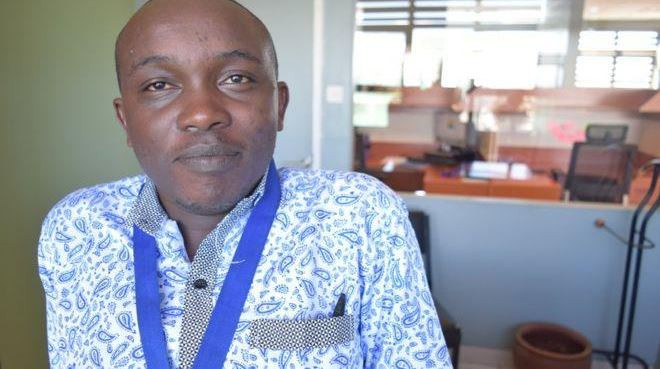Kenya: 'Heinous killing' of lawyer Willie Kimani must be investigated say human rights groups
Bodies of lawyer Willie Kimani, his client, and their driver found prior to police trial.

More than 30 Kenyan and international human-rights organisations are urging Kenyan authorities to investigate the "shocking abduction, enforced disappearance and extrajudicial killings" of a human rights lawyer, his client and a taxi driver.
Later on 4 July, human rights activists will hold demonstrations in Nairobi and other parts of Kenya to protest what Human Rights Watch (HRW) called "heinous killings."
The bodies of lawyer Willie Kimani, his client Josphat Mwenda, and their taxi driver Joseph Muiruri, were recovered from Ol-Donyo Sabuk River in Machakos County, 73km north-east of Nairobi, on 30 June, a week after the three went missing. Several organisations have suggested they were victims of enforced disappearance.
Before the bodies were discovered, 34 Kenyan and international human rights organisations claimed the three men were allegedly abducted by the Administration Police (AP) as they left a court in Machakos County, outside of the capital Nairobi, last week.
A lawyer working with the International Justice Mission (IJM) said Kimani had been representing Mwenda in a case stemming from 10 April 2015 – in an incident where an officer from Syokimau AP Camp shot him during a traffic stop.
Initial reports suggest that Administration Police officers, one of whom Mwenda was defending himself against in court that day, may have abducted them.
On 2 July, Inspector-General of Police Joseph Boinett confirmed three AP officers attached to the Syokimau AP Camp – Frederick Leliman, Stephen Chebulet and Sylvia Wanjiku – were being held over offences relating to the killings. They appeared in court on Monday (4 July).
Three police officers suspected to be behind killing of lawyer #WillieKimani and 2 others arraigned in court. pic.twitter.com/iEYtfWsUwH
— Citizen TV Kenya (@citizentvkenya) July 4, 2016
Killings are threat to rule of law in Kenya
Rights activists have urged Kenyan agencies, such as civilian body the Independent Policing Oversight Authority (IPOA), and the police, to find those responsible for the killings and hold them to account in fair trials.
They warned the crimes "should be cause for alarm over the state of human rights and rule of law in Kenya". Activists also reminded Kenya's international partners, such as Sweden, United Kingdom and the US, that those providing financial support to Kenyan police units implicated in extrajudicial killings should insist on accountability for violations committed.
"A transparent process of investigating and prosecuting those responsible is what is now needed, to reassure shocked Kenyans of their safety and restore their faith in the national police," said Kamau Ngugi, National Coordinator at Kenya's National Coalition of Human Rights Defenders. "That a lawyer working for an international organisation and his client could be abducted and disappeared in broad daylight only to be found dead is a matter that cannot be taken lightly."
The call for prompt, independent, impartial and effective investigation was echoed by Muthoni Wanyeki, Amnesty International's Regional Director for East Africa, the Horn and the Great Lakes, who said the extrajudicial killings "are a chilling reminder that the hard-won right to seek justice for human rights violations is under renewed attack."
Henry Maina, regional director at rights organisation Article 19, Eastern Africa, meanwhile, insisted President Jomo Kenyatta must take decisive steps to assure Kenyans and the international community that the government is serious about addressing police killings.
Activists will hold demonstrations today (4 July) in Nairobi and other parts of Kenya to protest against the killings.
© Copyright IBTimes 2025. All rights reserved.






















